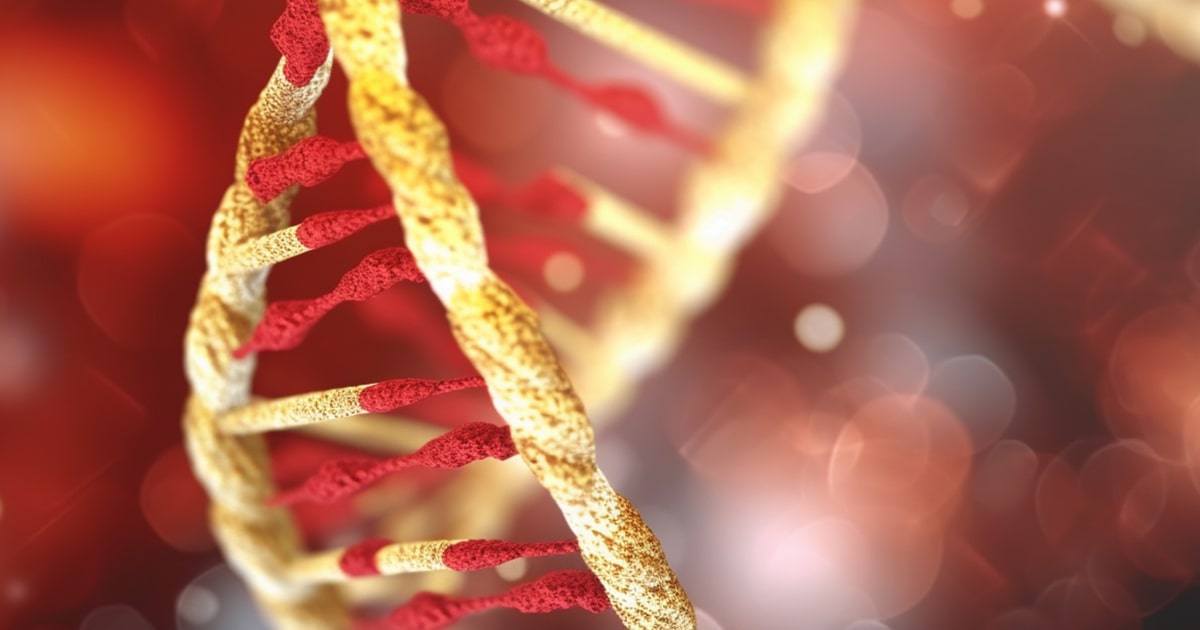
Expert Reviewed By: Dr. Brandon Colby MD
Both breast and colorectal cancer are among the most common types of cancer worldwide. With advancements in genetic research, it has become possible to identify individuals who may have an increased risk of developing these cancers due to genetic factors. This article aims to provide a comprehensive understanding of the role of genetic testing in diagnosing and managing breast and colorectal cancer susceptibility. We will explore the psychosocial consequences of genetic susceptibility testing and the various factors that can impact an individual's adjustment to their cancer risk.
Genetic Susceptibility Testing: Unraveling the Mystery
Genetic susceptibility testing involves analyzing an individual's DNA to identify specific gene mutations or variations that may increase their risk of developing certain types of cancer. In the case of breast and colorectal cancer, researchers have identified specific gene mutations that can significantly increase an individual's risk of developing these diseases. However, it is important to note that not all individuals who carry these gene mutations will develop cancer, and not all cases of breast and colorectal cancer are due to genetic factors.
One study, "The Evaluation of p53 Polymorphism at Codon 72 and Association With Breast Cancer in Iran: A Systematic Review and Meta-analysis," found that the Arg/Arg genotype is a risk factor for breast cancer, while the Pro/Pro genotype is a protective factor. Another study, "Evidence against a major genetic basis for combined breast and colorectal cancer susceptibility," provides evidence against a significant genetic basis for combined breast and colorectal cancer susceptibility. This highlights the complex nature of cancer susceptibility and the need for further research in this area.
Psychosocial Consequences of Genetic Susceptibility Testing
While genetic susceptibility testing can provide valuable information about an individual's risk of developing breast and colorectal cancer, it can also have significant psychosocial consequences. A thesis titled "Family Matters: Adjustment to genetic cancer susceptibility testing" explores the psychosocial consequences of genetic susceptibility testing for breast and colorectal cancer predisposition and identifies risk factors for maladjustment. These may include feelings of guilt, anxiety, and depression, as well as changes in family dynamics and relationships.
Managing the Emotional Impact of Genetic Testing
It is crucial for individuals undergoing genetic susceptibility testing to receive appropriate support and counseling to help them cope with the emotional impact of their test results. A study titled "Coping style, psychological distress, risk perception, and satisfaction in subjects attending genetic counselling for hereditary cancer" examines coping styles, psychological distress, risk perception, and satisfaction in individuals attending genetic counseling for hereditary cancer. The study found that individuals with a more proactive coping style reported lower levels of psychological distress and higher satisfaction with genetic counseling.
Utilizing Genetic Testing to Inform Prevention and Treatment Strategies
Genetic susceptibility testing can play a crucial role in informing prevention and treatment strategies for individuals at risk of developing breast and colorectal cancer. By identifying those with an increased genetic risk, healthcare providers can recommend tailored screening programs, risk-reducing medications, and lifestyle modifications to help reduce the risk of developing cancer. In some cases, individuals with a high genetic risk may also opt for risk-reducing surgeries, such as prophylactic mastectomy or oophorectomy for breast cancer prevention.
Conclusion
Understanding the role of genetic testing in diagnosing and managing breast and colorectal cancer susceptibility is essential for individuals at risk of developing these diseases. While genetic susceptibility testing can provide valuable information about an individual's cancer risk, it is crucial to consider the psychosocial consequences and ensure appropriate support and counseling are available. By utilizing genetic testing to inform prevention and treatment strategies, individuals can take proactive steps to reduce their risk of developing breast and colorectal cancer.
About The Expert Reviewer
Dr. Brandon Colby MD is a US physician specializing in the personalized prevention of disease through the use of genomic technologies. He’s an expert in genetic testing, genetic analysis, and precision medicine. Dr. Colby is also the Founder of and the author of Outsmart Your Genes.
Dr. Colby holds an MD from the Mount Sinai School of Medicine, an MBA from Stanford University’s Graduate School of Business, and a degree in Genetics with Honors from the University of Michigan. He is an Affiliate Specialist of the American College of Medical Genetics and Genomics (ACMG), an Associate of the American College of Preventive Medicine (ACPM), and a member of the National Society of Genetic Counselors (NSGC)